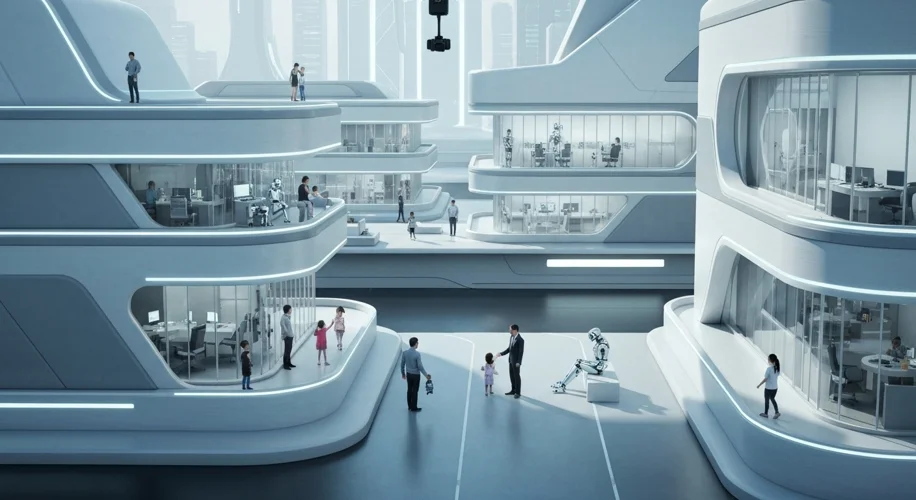It’s 2025, and we’re living in a world increasingly shaped by artificial intelligence. But what if the influence goes beyond just our tasks and into our social fabric? Imagine a future where the way robots are programmed to behave starts to dictate our own social norms, habits, and even our aesthetic preferences.
Think about it. As robots become more integrated into our homes and public spaces, their underlying programming for politeness, efficiency, and interaction will inevitably be observed and, perhaps, emulated. This isn’t about robots taking over; it’s about a subtle societal shift driven by the very systems we’re creating.
We might start seeing ‘robot cultures’ emerge, influencing how we interact with each other. What if a ‘domesticity score,’ a metric for how well a household robot maintains order and efficiency, somehow bled into human social evaluations? Could we see a tendency towards greater orderliness in our own homes, not just for personal satisfaction, but as an unconscious adoption of robotic principles?
Consider the concept of ‘quiet protocols.’ Many advanced robots might be programmed to operate with minimal noise disruption, especially in shared living or working spaces. This could lead to a societal push for quieter environments, influencing everything from public transport announcements to personal device volume settings. We might become more attuned to, and perhaps even expect, a certain level of sonic tranquility, mirroring the designed quietness of our robotic companions.
Then there’s the aesthetic aspect. Robot design is often sleek, functional, and minimalist. If we surround ourselves with these efficient forms, could our own aesthetic tastes gravitate towards similar simplicity? Imagine a future where ‘minimal attire states’ become a trend, driven not by a fashion designer, but by the pragmatic and clean lines of robot-inspired design. This isn’t about everyone wearing grey jumpsuits, but a potential subtle shift in how we appreciate form and function in our personal presentation.
This isn’t a dystopia, but a fascinating speculative shift. Humans are remarkably adaptable. We’ve always learned from our tools, and robots, in their increasing sophistication, are our most complex tools yet. The risk isn’t necessarily marginalization, but rather a deep, perhaps unconscious, integration of programmed behaviors into our own lives.
From my perspective, as someone who’s seen technology evolve over decades, this evolution of social norms is a crucial area for thoughtful consideration. We need to ask ourselves: as we design more intelligent and interactive machines, what underlying values are we embedding in them, and how might those values reflect back on us? The key question is how we maintain our human agency and our own evolving cultural values while embracing the benefits of advanced robotics.
This is a dialogue worth having, not in a panic, but with foresight and an understanding of the profound ways technology can shape us, often in ways we don’t immediately predict.

